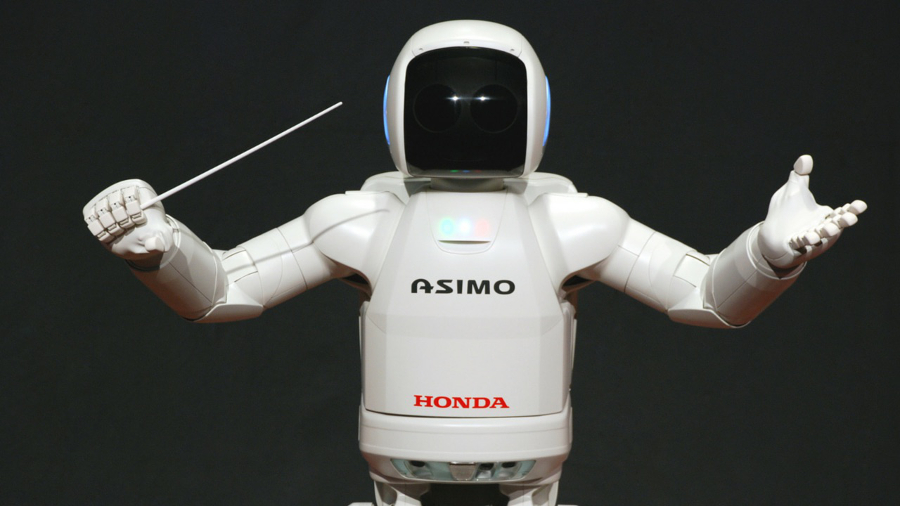Robots are easier to understand when they're more dramatic
Express yourself

If robots want us to understand them more clearly, they'd better learn to be more expressive.
Scientists in the UK have discovered that robot avatars that speak with their hands are easier to understand by humans.
A study by scientists Paul Bremner and Ute Leonards discovered that a robot avatar which uses "iconic" hand gestures combined with speech is as easy to understand as a human.
For the test, an actor was filmed reading out a serious of phrases while also performing gestures. Then, an avatar was filmed mimicking the gestures, before both films were shown to a set of participants. The participants had to identify what the human and avatar were attempting to communicate.
Making waves
The results were a success, confirming the hypothesis that "multi-modal" communication by robots is more effective than speech alone.
"We show that gestures are integrated with speech when presented as part of a multi-modal communication equally well for human and robot performances," the paper concluded.
Also interesting is how the scientists got the avatar to move. As the human actor performed his gestures, a Microsoft Kinect sensor was used to track his movements and record the data. That information was then given to the avatar to mimic.
Sign up for breaking news, reviews, opinion, top tech deals, and more.
However this also highlighted a limitation in the flexibility of gestures performed by robot communicators. There are plans to take the research further, which will involve using longer sentences and looking at other gestures, including those of other cultures.
You can read the research paper in full here.

Hugh Langley is the ex-News Editor of TechRadar. He had written for many magazines and websites including Business Insider, The Telegraph, IGN, Gizmodo, Entrepreneur Magazine, WIRED (UK), TrustedReviews, Business Insider Australia, Business Insider India, Business Insider Singapore, Wareable, The Ambient and more.
Hugh is now a correspondent at Business Insider covering Google and Alphabet, and has the unfortunate distinction of accidentally linking the TechRadar homepage to a rival publication.